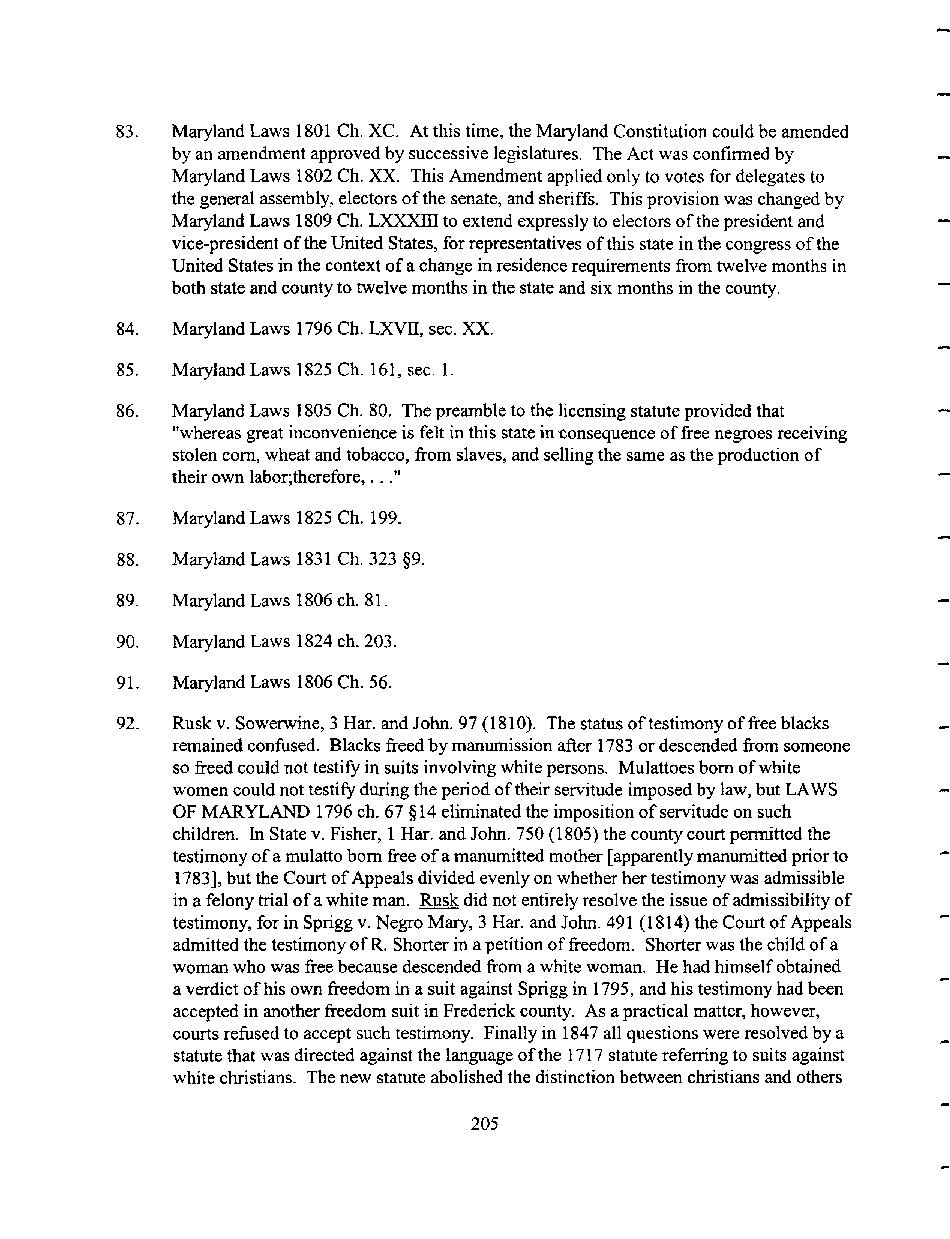|
83. Maryland Laws 1801 Ch. XC. At this time, the Maryland Constitution could be amended
by an amendment approved by successive legislatures. The Act was confirmed by
Maryland Laws 1802 Ch. XX. This Amendment applied only to votes for delegates to
the general assembly, electors of the senate, and sheriffs. This provision was changed by
Maryland Laws 1809 Ch. LXXXm to extend expressly to electors of the president and
vice-president of the United States, for representatives of this state in the congress of the
United States in the context of a change in residence requirements from twelve months in
both state and county to twelve months in the state and six months in the county.
84. Maryland Laws 1796 Ch. LXVH, sec. XX.
85. Maryland Laws 1825 Ch. 161, sec. 1.
86. Maryland Laws 1805 Ch. 80. The preamble to the licensing statute provided that
"whereas great inconvenience is felt in this state in consequence of free negroes receiving
stolen com, wheat and tobacco, from slaves, and selling the same as the production of
their own labor;therefore,..."
87. Maryland Laws 1825 Ch. 199.
88. Maryland Laws 1831 Ch. 323 §9.
89. Maryland Laws 1806 ch. 81.
90. Maryland Laws 1824 ch. 203.
91. Maryland Laws 1806 Ch. 56.
92. Rusk v. Sowerwine, 3 Har. and John. 97 (1810). The status of testimony of free blacks
remained confused. Blacks freed by manumission after 1783 or descended from someone
so freed could not testify in suits involving white persons. Mulattoes born of white
women could not testify during the period of their servitude imposed by law, but LAWS
OF MARYLAND 1796 ch. 67 §14 eliminated the imposition of servitude on such
children. In State v. Fisher, 1 Har. and John. 750 (1805) the county court permitted the
testimony of a mulatto bom free of a manumitted mother [apparently manumitted prior to
1783], but the Court of Appeals divided evenly on whether her testimony was admissible
in a felony trial of a white man. Rusk did not entirely resolve the issue of admissibility of
testimony, for in Sprigg v. Negro Mary, 3 Har. and John. 491 (1814) the Court of Appeals
admitted the testimony of R. Shorter in a petition of freedom. Shorter was the child of a
woman who was free because descended from a white woman. He had himself obtained
a verdict of his own freedom in a suit against Sprigg in 1795, and his testimony had been
accepted in another freedom suit in Frederick county. As a practical matter, however,
courts refused to accept such testimony. Finally in 1847 all questions were resolved by a
statute that was directed against the language of the 1717 statute referring to suits against
white Christians. The new statute abolished the distinction between Christians and others
205
�
|

